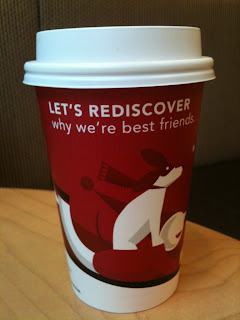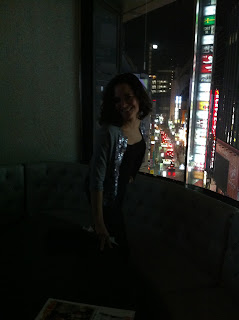One of the tough things about being an expat kid is that every few months or so, you're saying goodbye to one of your friends. Not surprising, really; the expat community is by nature transient, with families moving in and on with regular frequency, as jobs change, international assignments end, or, as is more often the case these days, companies shut down or make employees redundant. Lately, though, what seems to be spurring some families to go is a weariness - parents, primarily mothers, sick of worrying about their kids' health and safety in post-March 11 Japan. Specifically, nagging concerns about food, whether it's contaminated, how much can you safely eat if it is, etc.
That's not to say that this subject still dominates coffee morning conversation. It doesn't. (Seems bullying at school is the new hot topic.) I think people here have come to accept a certain amount of risk, and anyway, nothing serious (as far as I know) has been detected in Tokyo save for the occasional report of, say,
radioactive Cesium found in Meiji-brand baby formula. It's important to note that in this particular case the levels detected in the product were far below the government limit, though try telling the mother of an infant that a little Cesium is O.K.
Same with mothers of older kids. I don't want to give my kids even a little Cesium 134 or Cesium 137 or any other isotope that "may" increase their risk of cancer later in life. Key word "may" as the long term effects of low-level exposure are still not known, not in kids or adults. At a safety briefing at school a few weeks ago, we were told that it's still unclear whether young developing bodies, because they are young and still developing, are more vulnerable, or more resistant to harm.
So we've become vigilant about reading labels on the produce and meal and milk, avoiding anything that comes from Fukushima (if the store even carries it, which many have started to, as a show of support for the poor Fukushima farmers) and the areas around it. I try to buy items from Kyushu (down south) and Hokkaido (north). Of course, we're told that food can be re-routed and labels marked with only the most recent location rather than the true origin; that a little contamination is permitted under government regulations, so producers could be mixing a little bad in with the good, to keep the overall supply within acceptable range (though Meiji's actions in recalling 400,000 cans of tainted formula is encouraging); and, even in a country with strict standards and an above-average safety inspection system, that it's impossible to test all food in any comprehensive, effective, reliable way.
So we worry. I can't imagine there's anybody who doesn't think about it whilst picking up a head of broccoli or lettuce. I know that many who once shopped at their local green grocer now almost exclusively shop at the international supermarkets and pay more for imported produce; some have stopped buying milk altogether. Some keep a list of the kanji for prefectures to avoid in their handbags.
And some leave.
Long-time expats here (non-Japanese friends who've been here well past your more typical 3 to 5 year stay, in some cases longer than a decade, their kids born and raised here) often say that for the children, it's always harder to be the one left behind. Dylan would probably agree. His good friend Edwin has just gone, and it's hit him pretty hard. In the last three years he'd been over to ours countless times, for play dates and sleepovers; the boys had done "Swim Friends" and tennis lessons and karate classes together. When Dylan took a few friends out for Korean barbecue to celebrate his 8th birthday, Edwin was there. He's a great kid, and we'll all miss him.
Best of luck to you, Ed!


























